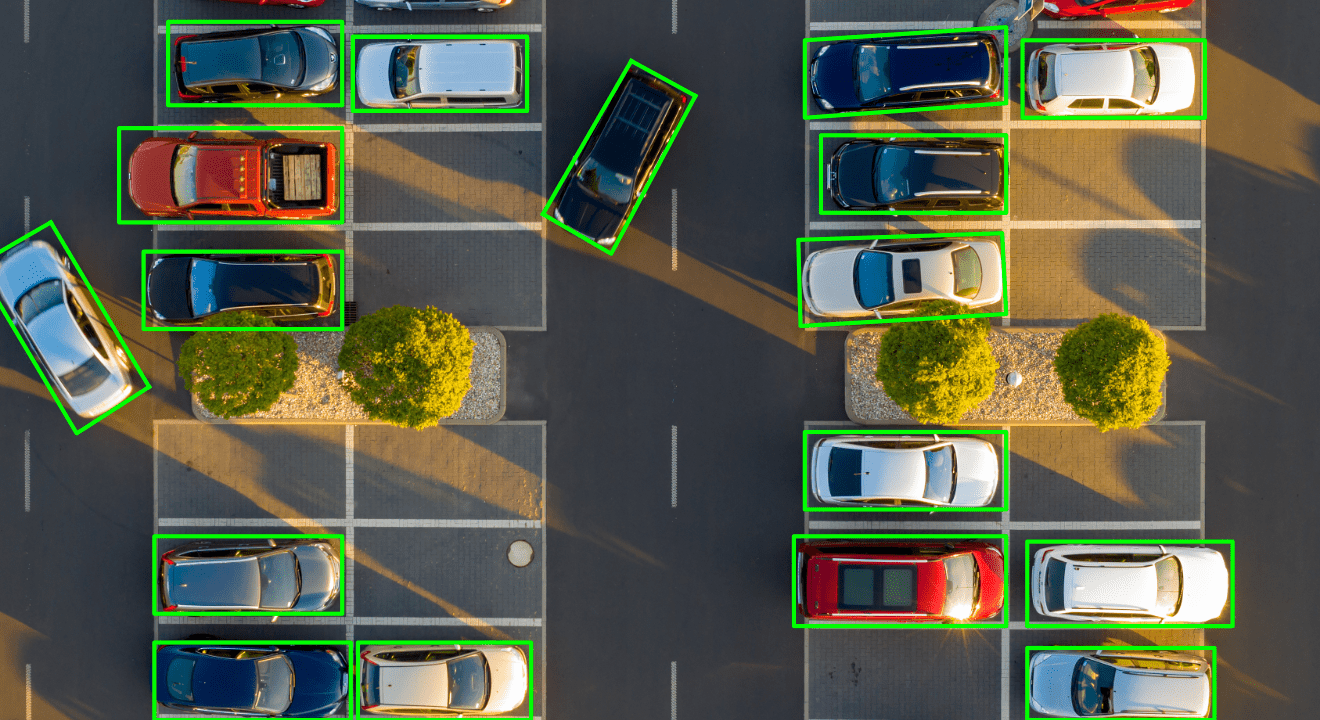Most people living in big cities can attest to the difficulty of finding a parking spot. Every day billions of drivers are looking for a parking space to leave their car and go to either work, shopping, home, or meetings. As the world is returning to “normal” after COVID-19, this problem is getting bigger each year and costs us all a lot of wasted time, fuel, and CO2 emissions. But what if there was a way to ease this burden? Smart parking systems are becoming more and more popular in cities around the world. These systems use sensors, computer vision, and database systems to help drivers find available parking spots.
Implementing smart parking systems to reduce the traffic and emissions
-
Date
February 24, 2023
-
Read time
5 min
Parking space search harms your wallet and ecology
Based on the report created by INRIX Research, one of the biggest problems drivers in large cities face is parking their cars. They waste significant amounts of time and fuel trying to find a free parking spot. In the United States, an average driver spends about 17 hours looking for a parking space per year. In the United Kingdom, the average time is 44 hours, and in Germany, it is 41 hours. But in the largest cities, the amount of time is much more significant. In New York, for example, it is 107 hours, 67 in London, and 65 in Frankfurt. It is estimated that an average driver in N.Y. loses over 2000$ parking their car, which adds up to $4,3 billion for a whole city.
Based on the data provided by both papers, we can estimate that each New York City driver, on average, consumes about 143,5 liters of fuel (38 gallons) and emits 317 kg of CO2 per year when searching for parking space.
What is a smart parking system?
A smart parking system is an automated system that helps drivers find available parking spaces and navigates to them. The system uses sensors to detect vacant spaces and sends real-time information about these spaces to drivers via a mobile app or in-dash display. It enables drivers to save time and fuel and also reduces traffic and pollution.

With enough historical data, such a system could even predict and consider the weather, days of the week, holidays, and the possibility of finding a free parking space wherever you go. This way, you could check if it is even worth leaving your home or find the nearest place you can find a parking spot.
In some cases, smart parking systems may also offer dynamic pricing, which charges higher prices for parking during peak times and lower prices during off-peak times. This pricing model intends to further incentivize drivers to avoid congested areas and help reduce overall traffic levels.
How can a smart parking system be beneficial?
A smart parking system benefits the drivers and the whole city in numerous ways. The first advantage is the reduction in traffic congestion as a consequence of drivers spending less time searching for a parking space. In addition to that, by making it easier to park your car, a smart parking system can help reduce pollution from vehicles idling in search of a space.
The convenience of parking can also be improved with a help of a smart parking system. By providing real-time information on available spaces, such a system can save drivers time and frustration. What is more, a smart parking system accepts electronic payments, making it easier for drivers to pay for their parking without having to fumble for coins or carry cash.
Last but certainly not least, the most important benefit of a smart parking system is the positive environmental impact that’s achieved in multiple ways. Reducing the time that drivers spend looking for a parking space helps to significantly reduce traffic and vehicle emissions. Furthermore, by helping to optimize the use of existing parking resources, a smart parking system can help to reduce the need for new parking facilities, which would require additional land and resources.
Based on the data above, we estimated that each New York City driver on average consumes 143,5 liters of fuel (38 gallons) and emits 317 kg of CO2 per year while searching for parking space. With a Smart Parking System, it can be reduced by 2 to 4 times. Implementing this system alone in New York would reduce CO2 emissions by 158 mln kg and save $3 bln.
Overview
Overall, it is evident that there are many potential environmental impacts of smart parking systems. However, more research is needed to fully grasp the magnitude of these impacts. Additionally, further research is crucial for exploring how different smart parking system implementations can minimize negative ecological impacts.
Reducing parking search time is a big technological challenge for Smart Cities today. It requires creating a database of parking spaces, Computer Vision to spot free parking spaces, and ML prediction models to estimate where drivers can find available spots before arrival. These projects create fundamentals for such a system.
CONTACT CLEDAR
Interested in enhancing your AI capabilities?
Leave your details and any questions or ideas you might have, and we’ll get back to you to schedule a call.



